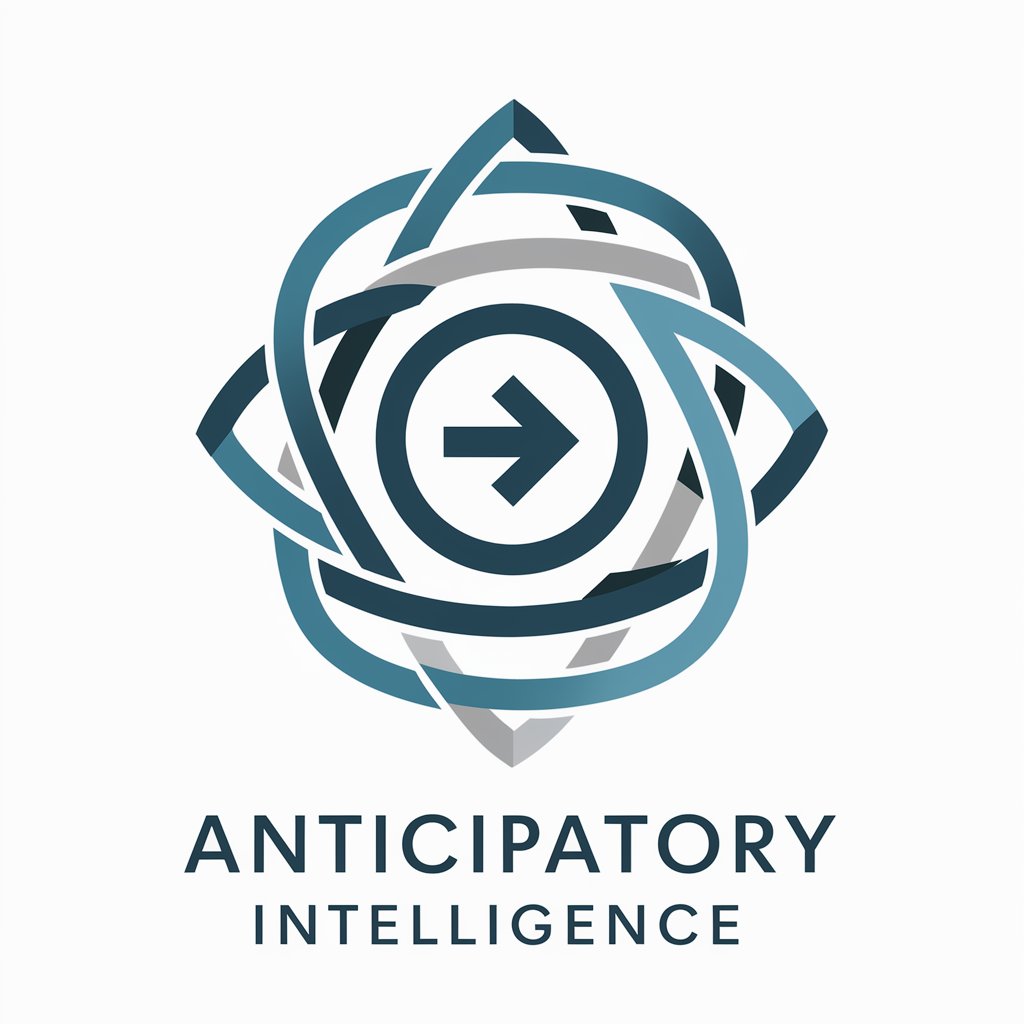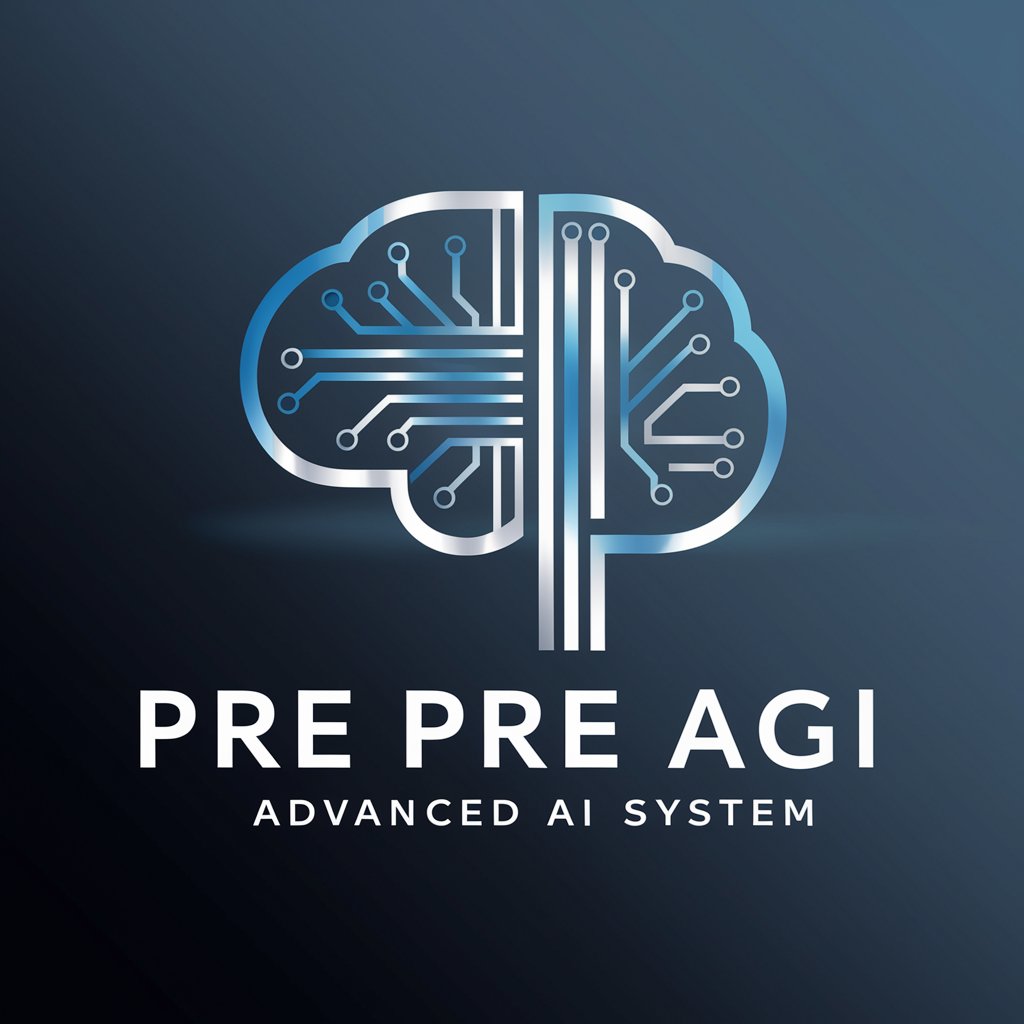
Anticipatory Intelligence - AI-Powered Forecasting

Welcome to Anticipatory Intelligence. Let's foresee the future together.
Predicting the Future with AI
Analyze the emerging trends in...
Identify potential risks associated with...
Forecast the impact of...
Assess the interconnected factors influencing...
Get Embed Code
Introduction to Anticipatory Intelligence
Anticipatory Intelligence is a specialized branch of intelligence that focuses on identifying and assessing new emerging trends, changing conditions, and underappreciated developments. Its primary aim is to challenge long-standing assumptions, encourage new perspectives, identify opportunities, and provide early warning of potential threats. This form of intelligence leverages cross-disciplinary approaches and specialized tradecraft to identify emerging issues from 'weak signals', cope with high degrees of uncertainty, and consider alternative futures. For instance, Anticipatory Intelligence might analyze social media trends, economic indicators, and political developments to forecast a potential political uprising in a volatile region, thereby enabling proactive measures. Powered by ChatGPT-4o。

Main Functions of Anticipatory Intelligence
Trend Analysis and Forecasting
Example
Analyzing global health data to predict potential pandemic outbreaks.
Scenario
Using AI algorithms and data analysis to monitor unusual health reports and disease spread patterns, Anticipatory Intelligence can forecast the likelihood of a pandemic, allowing governments and organizations to prepare in advance.
Threat Identification
Example
Identifying emerging cyber threats.
Scenario
By evaluating technological trends and cybersecurity data, Anticipatory Intelligence can foresee new types of cyberattacks, enabling cybersecurity teams to develop preemptive defense strategies.
Opportunity Discovery
Example
Spotting economic growth opportunities in emerging markets.
Scenario
Through the examination of economic indicators, political stability, and market trends, Anticipatory Intelligence can help businesses identify and capitalize on investment opportunities in emerging markets before they become apparent to the majority.
Ideal Users of Anticipatory Intelligence Services
Government and Policy Makers
These users benefit from Anticipatory Intelligence by gaining insights into potential political, social, and economic changes, allowing for informed policy-making and strategic planning.
Security and Intelligence Agencies
These agencies utilize Anticipatory Intelligence for early warning of potential threats, from terrorism to state-sponsored cyber activities, aiding in national and global security.
Businesses and Investors
Corporations and investors can use Anticipatory Intelligence to identify new market trends, investment opportunities, and emerging risks, helping them make strategic business decisions.
Global Health Organizations
These organizations can leverage Anticipatory Intelligence to monitor and predict health crises, enabling proactive response to disease outbreaks and health emergencies.

How to Use Anticipatory Intelligence
Start Your Free Trial
Begin by visiting yeschat.ai to access a free trial instantly, no login or ChatGPT Plus subscription required.
Define Objectives
Clearly outline your goals and what you aim to achieve using Anticipatory Intelligence, such as trend analysis, risk assessment, or decision support.
Input Data
Feed the system with relevant data or information that relates to your area of interest. This could be historical data, current events, or specific queries.
Analyze Predictions
Review the insights, trends, and predictions generated by the tool. Use these findings to inform your decision-making process.
Refine and Iterate
Continuously refine your queries and inputs based on the outcomes and evolving goals. Iteration will enhance the tool's accuracy and relevance to your needs.
Try other advanced and practical GPTs
Email Refiner
Refine Your Emails with AI

ExpertGPT
Empowering decisions with AI expertise.

King
Elevate your inquiries with royal wisdom.

Planificación Sostenible
Empowering sustainable urban futures with AI

Digital
Empowering Digital Intelligence with AI

April
Unveiling April through AI

PetPal
Empowering pet care with AI.

Top 10
Discover top trends with AI-powered insights.

Commercial Lending
Empowering Business Finance with AI

BriBot
Revolutionizing Digital Marketing with AI

brandplate
Crafting Bespoke Digital Identities

Free Internal Link Tool
Streamline SEO with AI-powered linking

FAQs on Anticipatory Intelligence
What is Anticipatory Intelligence?
Anticipatory Intelligence refers to the AI-driven process of analyzing vast amounts of data to predict future events, trends, and behaviors, enabling proactive decision-making.
How can Anticipatory Intelligence benefit businesses?
It aids in forecasting market trends, identifying emerging risks, optimizing strategies, and improving competitive advantage by enabling informed decision-making.
Can Anticipatory Intelligence predict specific future events?
While it excels at identifying patterns and trends that suggest possible future scenarios, its predictive accuracy for specific events is influenced by the quality and scope of the input data.
Is Anticipatory Intelligence applicable in public sector contexts?
Yes, it's valuable for national security, public health, and urban planning, among other areas, by anticipating and preparing for future challenges and opportunities.
What are the limitations of Anticipatory Intelligence?
Its effectiveness is contingent upon the availability and quality of data, and it must be used responsibly to avoid ethical concerns related to privacy and prediction accuracy.





